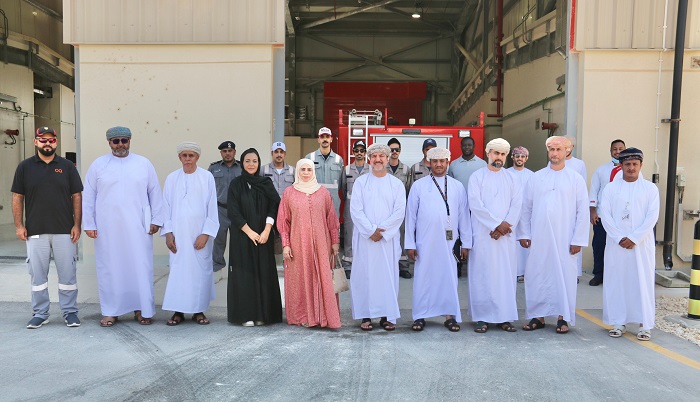The Oman Human Rights Commission (OHRC) recently conducted a review of labour services and care provided to workers in the Special Economic Zone at Duqm. The delegation, led by Chairman Prof. Rashid bin Hamad Al Balushi, assessed the adherence to protection standards, work environment quality, and facility compliance with occupational safety and health regulations. The Commission expressed satisfaction with the conditions observed during the field visit, which included inspections of various worker accommodations and interactions with employees in the area.
Specific sites visited by the delegation included the labour camp at Ras Markaz managed by the Oman Tank Terminal Company, Al Nahda labour village accommodations, and Karwa Motors’ labour camp. The goal of these visits was to evaluate the services offered to workers, monitor their health and environmental well-being, and ensure that security and safety measures met international human rights standards. Additionally, the delegation met with several workers to listen to their perspectives, discuss their rights, and provide information on the Commission’s work, monitoring mechanisms, and complaint procedures.
One key aspect of the visit was the meeting with Eng. Ahmed bin Ali Akaak, CEO of the Special Economic Zone at Duqm. The delegation reviewed the area’s master plan, future development plans, and the role of the zone in providing high-quality infrastructure, services, and a business-friendly environment for Omanis, residents, and investors. Additionally, ongoing monitoring of labour accommodations was verified to guarantee compliance with safety and occupational health standards.
This visit aligns with the mandates of the OHRC as outlined in its bylaws, specifically under Royal Decree No. (57/2022). Clause 6 of Article 11 states that the Commission is responsible for conducting field visits to various facilities, including prisons, detention centres, hospitals, and labour communities, to monitor human rights conditions. By actively engaging with workers, assessing living conditions, and ensuring compliance with international standards, the Commission upholds its commitment to protecting human rights in Oman.
Overall, the OHRC’s field visit to the Special Economic Zone at Duqm highlighted the importance of ensuring worker rights, safety, and well-being in line with international human rights standards. By conducting thorough inspections, engaging with workers, and collaborating with key stakeholders, the Commission aims to promote a culture of respect for human rights and contribute to the creation of a safe and fair work environment for all individuals in Oman. The Commission’s commitment to monitoring labour accommodations and advocating for workers’ rights demonstrates its dedication to upholding human rights principles and fostering positive change within the community.











